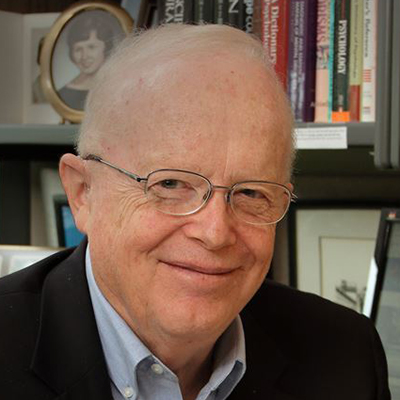-
About
Our Story
back- Our Mission
- Our Leadershio
- Accessibility
- Careers
- Diversity, Equity, Inclusion
- Learning Science
- Sustainability
Our Solutions
back
-
Community
Community
back- Newsroom
- Discussions
- Webinars on Demand
- Digital Community
- The Institute at Macmillan Learning
- English Community
- Psychology Community
- History Community
- Communication Community
- College Success Community
- Economics Community
- Institutional Solutions Community
- Nutrition Community
- Lab Solutions Community
- STEM Community
- Newsroom
- Macmillan Community
- :
- Psychology Community
- :
- Talk Psych Blog
Talk Psych Blog
Options
- Mark all as New
- Mark all as Read
- Float this item to the top
- Subscribe
- Bookmark
- Subscribe to RSS Feed
Talk Psych Blog
Showing articles with label Memory.
Show all articles
Author
03-20-2020
06:36 AM
“Memory is insubstantial. Things keep replacing it.” ~Annie Dillard, “To Fashion a Text,” 1988 Often in life we do not expect something to happen until it does, whereupon—seeing the forces that produced the event—we feel unsurprised. We call this phenomenon the hindsight bias (aka the I-knew-it-all-along phenomenon). Hindsight bias is fed by our after-the-fact misremembering of our before-the-fact views. We don’t just retrieve our memories, we reweave them. Like those who continuously revise Wikipedia pages, our brain often replaces a retrieved memory with a modified one. Memory researchers call this process reconsolidation. Reconsolidation explains some unnerving observations. In several studies, people whose beliefs or attitudes have changed have nevertheless insisted that they always felt much as they now feel. In one study, Carnegie Mellon University students answered a survey that included a question about student control over the curriculum. A week later, after being induced to write an essay opposing student control, their attitudes shifted toward what they’d written—greater opposition to student control. Yet when recalling their earlier opinion, the students “remembered” holding the opinion that they now held. After observing other students similarly denying their former attitudes, researchers D. R. Wixon and James Laird noted that “The speed, magnitude, and certainty” with which the students revised their own histories “was striking.” And so it has been even for President Trump and his self-proclaimed “world’s greatest memory,” as reflected in his evolving views of the coronavirus (documented here and elsewhere): January 22: “We have it totally under control. It’s one person coming in from China. It’s going to be just fine.” February 2: “We pretty much shut it down coming in from China.” February 24: “The Coronavirus is very much under control in the USA… Stock Market starting to look very good to me!” February 26: “We’re going to be pretty soon at only five people. And we could be at just one or two people over the next short period of time. So we’ve had very good luck.” February 27: “It’s going to disappear. One day—it’s like a miracle—it will disappear.” March 6: “I think we’re doing a really good job in this country at keeping it down … a tremendous job at keeping it down.” March 7: “I’m not concerned at all. No, I’m not. No, we’ve done a great job.” March 13: “National emergency. Two big words.” March 17: “I’ve always viewed it as very serious. … This is a pandemic. I felt it was a pandemic long before it was called a pandemic.” Our explanation of these contradictory statements depends partly on the lens through which we view them. Democrats may see them as evidence of dishonesty, Republicans as normal memory flaws. Or perhaps the truth lies somewhere in between. After following a group of adults from the 1930s through the 1990s, George Vaillant observed, “It is all too common for caterpillars to become butterflies and then to maintain that in their youth they had been little butterflies. Maturation makes liars of us all.” Decades later, his observation holds true—not only for the President but for us all. How easy it is to be wise after events. (For David Myers’ other essays on psychological science and everyday life, visit TalkPsych.com.)
... View more
Labels
-
Memory
0
0
5,893
Author
09-28-2018
11:23 AM
“She [Professor Christine Blasey Ford] can’t tell us how she got home and how she got there,” scorned Senator Lindsey Graham during the lunch break of yesterday’s riveting U. S. Senate Judiciary Committee hearing regarding Ford’s memory of being assaulted by Supreme Court nominee Brett Kavanaugh. Graham’s assumption, widely voiced by fellow skeptics of Ford’s testimony, is that her inability to remember simple peripheral details discounts the authenticity of her assault memory. But Graham and the other skeptics fail to understand, first, how extreme emotions signal the brain to “save this!” for future reference. (Likely you, too, have enduring “flashbulb memories” for long-ago emotional experiences?) And second, they fail to understand that peripheral details typically fall into oblivion. In Psychology, 12th Edition, Nathan DeWall and I explain: Our emotions trigger stress hormones that influence memory formation. When we are excited or stressed, these hormones make more glucose energy available to fuel brain activity, signaling the brain that something important is happening. Moreover, stress hormones focus memory. Stress provokes the amygdala (two limbic system, emotion processing clusters) to initiate a memory trace that boosts activity in the brain’s memory-forming areas (Buchanan, 2007; Kensinger, 2007) (FIGURE 8.9). It’s as if the amygdala says, “Brain, encode this moment for future reference!” The result? Emotional arousal can sear certain events into the brain, while disrupting memory for irrelevant events (Brewin et al., 2007; McGaugh, 2015). Significantly stressful events can form almost unforgettable memories. After a traumatic experience—a school shooting, a house fire, a rape—vivid recollections of the horrific event may intrude again and again. It is as if they were burned in: “Stronger emotional experiences make for stronger, more reliable memories,” noted James McGaugh (1994, 2003). Such experiences even strengthen recall for relevant, immediately preceding events [such as going up the stairway and into the bedroom, in Ford’s case] (Dunsmoor et al., 2015: Jobson & Cheraghi, 2016). This makes adaptive sense: Memory serves to predict the future and to alert us to potential dangers. Emotional events produce tunnel vision memory. They focus our attention and recall on high priority information, and reduce our recall of irrelevant details (Mather & Sutherland, 2012). Whatever rivets our attention gets well recalled, at the expense of the surrounding context. And as I suggested in last week’s essay, Graham and others seem not to understand “state-dependent memory”—that what people experience in one state (such as when drunk) they may not remember in another state (sober). Nor are Kavanaugh’s supporters recognizing that heavy drinking disrupts memory formation, especially for an experience that would not have been traumatic for him. Thus, Kavanaugh could be sincerely honest in not recalling an assaultive behavior, but also, possibly, sincerely wrong. (For David Myers’ other weekly essays on psychological science and everyday life visit www.TalkPsych.com.)
... View more
Labels
-
Memory
1
0
7,903
Topics
-
Abnormal Psychology
6 -
Achievement
2 -
Affiliation
1 -
Behavior Genetics
1 -
Cognition
7 -
Consciousness
8 -
Current Events
28 -
Development Psychology
13 -
Developmental Psychology
9 -
Drugs
1 -
Emotion
12 -
Gender
1 -
Gender and Sexuality
1 -
Genetics
3 -
History and System of Psychology
3 -
Industrial and Organizational Psychology
2 -
Intelligence
4 -
Learning
3 -
Memory
2 -
Motivation
3 -
Motivation: Hunger
2 -
Nature-Nurture
4 -
Neuroscience
4 -
Personality
10 -
Psychological Disorders and Their Treatment
9 -
Research Methods and Statistics
21 -
Sensation and Perception
6 -
Social Psychology
83 -
Stress and Health
8 -
Teaching and Learning Best Practices
7 -
Thinking and Language
12 -
Virtual Learning
2
- « Previous
- Next »
Popular Posts



